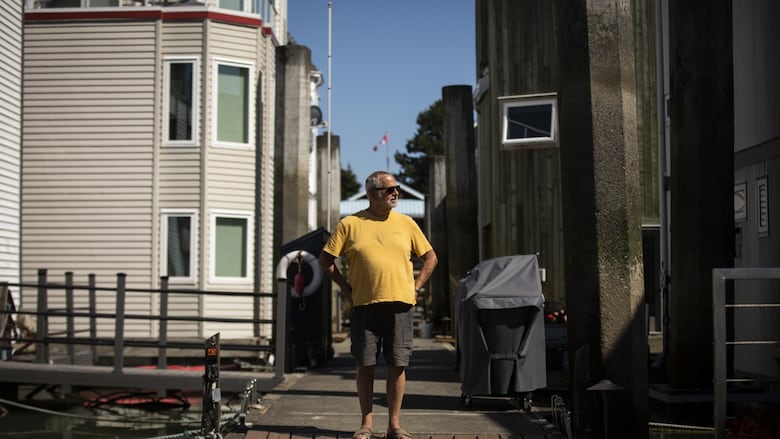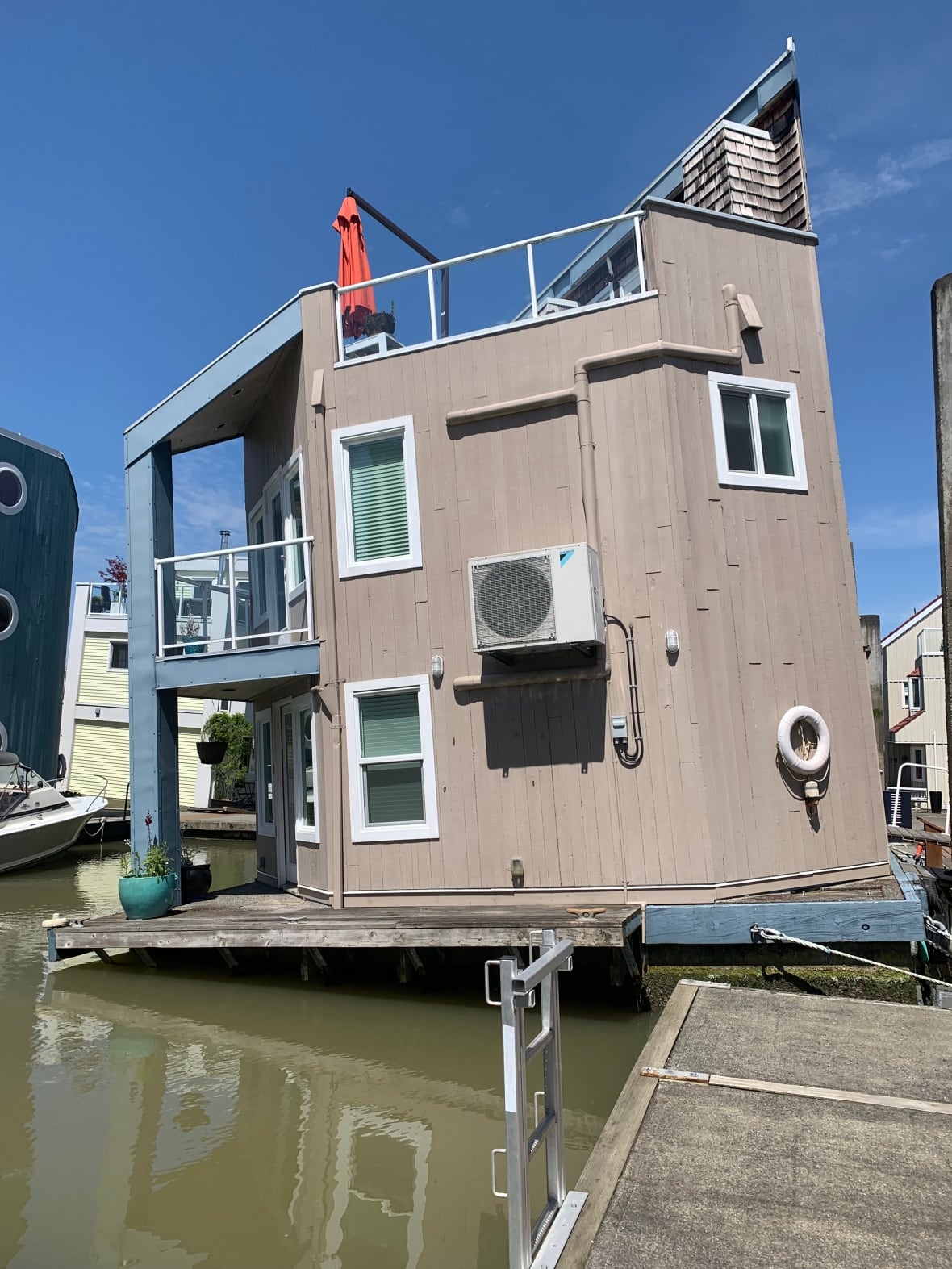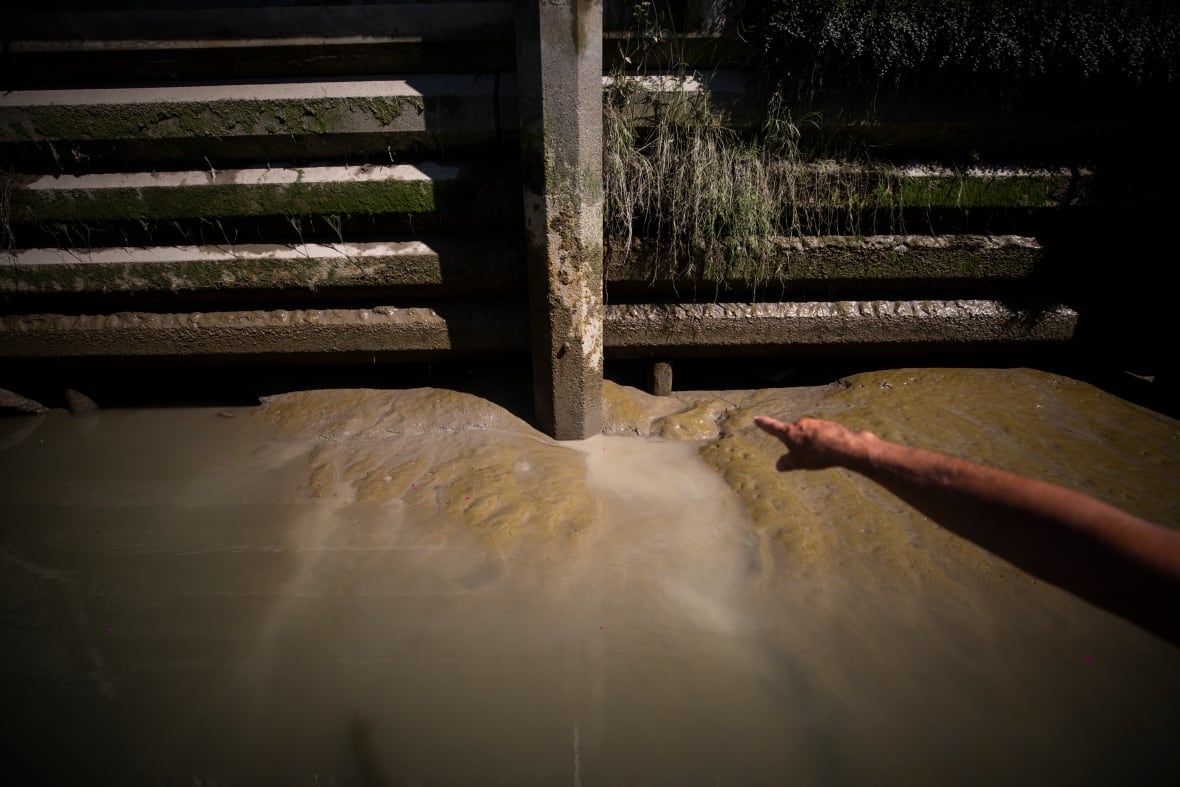As homes tilt in the mud, floating home community in Delta, B.C., fears for its survival
Responsiblity for dredging channel unclear, Delta mayor says

Residents of a floating home community on B.C.'s South Coast are worried about their homes as silt builds up in the Fraser River, causing them to sit in the mud during low tide.
Ted Dufresne, a resident of Canoe Pass Village in Delta, B.C., said the homes tilt when the tide is low, which is putting residents' safety at risk.
"We have a lot of seniors in this community," he said. "Let's say someone got up during the middle of the night and fell, broke a hip or had a heart attack … emergency vehicles, ambulances would have a real problem trying to access them and [for] some houses, they may not even be able to get inside."
Paul Scott, head of maintenance for the village, said he's had to get creative to fix damage to docks as a result of this situation.

After five years of working in the community, he said sediment buildup under the docks is only getting worse.
"It shouldn't be this way."
The silt building up in the Fraser River is also affecting Tsawwassen First Nation members; the First Nations said the buildup is threatening river health and access to fishing sites.
"For us, this is not only about navigation or infrastructure, it is about our way of life," the Nation said in an email. "Without action, the silt buildup threatens, not just access to the river, but also the reasonable opportunity to fish, a right guaranteed under our Final Agreement."
Now, the Tsawwassen First Nation and Canoe Pass Village residents alike are calling for the area to be dredged — but it's unclear who is actually responsible for dredging that particular channel of the Fraser River.
The Vancouver Fraser Port Authority is responsible for dredging the main channel of the Fraser River, but told CBC News no single authority is responsible for the secondary channel, where Canoe Pass Village is located.
Delta Mayor George Harvie said the port authority used to dredge the secondary channel, but since it stopped, no one has taken responsibility for taking care of it. Dufresne, who has lived in Canoe Pass Village for 12 years, said the channel hasn't been dredged since he's lived there.

In an emailed statement to CBC News, the Ministry of Water, Land and Resource Stewardship said "several organizations and levels of government" have met to discuss the issue "regularly."
Harvie said Canoe Pass Village is trying to get emergency dredging done under their float homes, but the community is waiting for a permit.
Residents could try having the channel dredged without a permit, but they could face hefty fines, Harvie added.

He suggested annual dredging would cost about $3 million per year.
Harvie said he, along with Richmond's mayor and local First Nations, sent a letter to the federal government explaining the situation and dire need for support, but they never heard back.
"It's $3 million," Harvie said. "It affects public safety, affects people's jobs. I don't understand why they just won't take action on it."
Transport Canada was unable to provide a comment in time for publication.

With files from Amelia John and The Early Edition